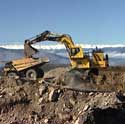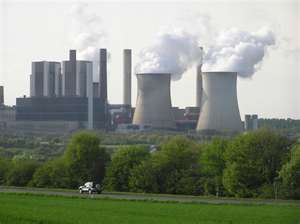 Simon Johnson/aka Mr February argues that the New Zealand Emissions Trading Scheme has become living-dead “zombie” legislation that infects other statutes with its own virulent climate change insanity. The example is a recent decision by the Environment Court that it can’t consider climate change impacts of coal mining as described by James Hansen in the Forest and Bird appeal of the resource consents for the opencast ‘Escarpment’ coal mine.
Simon Johnson/aka Mr February argues that the New Zealand Emissions Trading Scheme has become living-dead “zombie” legislation that infects other statutes with its own virulent climate change insanity. The example is a recent decision by the Environment Court that it can’t consider climate change impacts of coal mining as described by James Hansen in the Forest and Bird appeal of the resource consents for the opencast ‘Escarpment’ coal mine.
The other week I watched the zombie genre film 28 Weeks Later. The turning point in the film came when British actor Robert Carlyle kissed his wife and was instantly infected with the ‘Rage Virus’, which of course meant he had to turn into a homicidal-virus spreading-living-dead zombie who would then infect the rest of the surviving population of post-Rage Virus London. A great zombie movie moment!
For me, another much less amusing zombie moment, was last week’s news from TVNZ, Radio NZ, the Otago Daily Times, and the Dominion Post, that the Environment Court had declared that climate change effects from coal mining will not be considered in Forest and Bird’s appeal of the consents granted for the Escarpment Mine Project, an opencast coal mine on the ecologically sensitive Denniston Plateau.
Continue reading “Zombie ETS infects RMA with climate insanity”

 The latest
The latest  I watched TVNZ’s Q+A on Sunday with dismay. Phil Heatley, the Minister of Energy and Resources, was
I watched TVNZ’s Q+A on Sunday with dismay. Phil Heatley, the Minister of Energy and Resources, was  At the suggestion of Slovenian colleagues, James Hansen has written to the President and members of the National Assembly of the Republic of Slovenia urging them to deny a state guarantee for a proposed European Investment Bank loan to fund a new lignite-fired power plant in their country.
At the suggestion of Slovenian colleagues, James Hansen has written to the President and members of the National Assembly of the Republic of Slovenia urging them to deny a state guarantee for a proposed European Investment Bank loan to fund a new lignite-fired power plant in their country. The Minister for Economic Development Steven Joyce had a curious
The Minister for Economic Development Steven Joyce had a curious